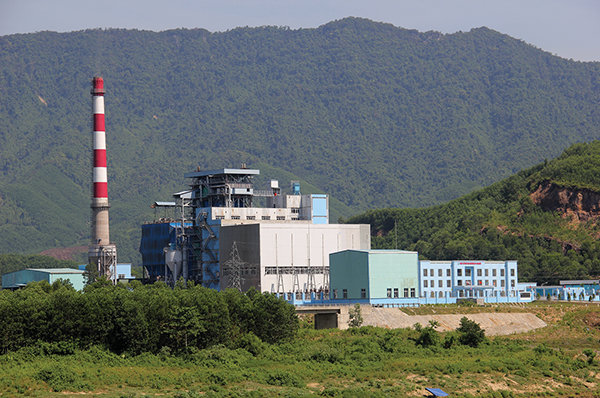A Malaysian printing ink manufacturer said Tuesday it is in the last stage of talks to start developing a multibillion-dollar thermal power plant in southern Vietnam.
Toyo Ink Group Bhd is concluding the final four agreements for the Song Hau 2 project, to be located in the Mekong Delta province of Hau Giang, according to the Malaysian National News Agency.
The ink-maker began diversifying its operations in the power sector about eight years ago and has spent a lot of time conducting feasibility studies and physical research for the Vietnam project, the Malay-language newspaper reported.
In 2013 the Malaysian company and the General Department of Energy, under the Vietnamese Ministry of Industry and Trade, signed a memorandum of understanding on the development of the 2,000MW coal-fueled Song Hau 2 plant, according to Vietnamese media.
The US$3.5 billion project will be developed under the build-transfer-operation (BOT) method with a term of 25 years, starting 2021, Toyo Ink managing director Song Kok Cheong told reporters after the company’s annual general meeting in Kuala Lumpur on Tuesday.
The company is in the process of finalizing the deal on land leasing and coal supply, as well as the power purchase agreement (PPA), which is expected to be completed in the first quarter of 2016, Song was quoted by the Malaysian National News Agency as saying.
Talks on the PPA are expected to take two to three months, after which Toyo Ink hopes to obtain the investment license from Vietnamese authorities, according to the managing director.
It will take four to five years to construct the power plant.
Song noted, however, that Toyo Ink cannot afford the project on its own, therefore calling for interested businesses to form a joint venture.
Toyo Ink is negotiating with some possible partners, the managing director said without giving details.
The Malaysian firm is only able to cover 20 percent of the $3.5 billion total investment, and will borrow bank loans for the remaining fund, according to the Malaysian National News Agency.
The Vietnam project is thought to generate $970 million in annual revenue, starting 2021, thus helping improve the company’s financial position and provide steady income streams, at a time when its ink business is hurt domestically, Song said.
The printing and packaging industry has deteriorated in the middle of the digitization era, which also affects business ink suppliers, he said.
Like us on Facebook or follow us on Twitter to get the latest news about Vietnam!




















































